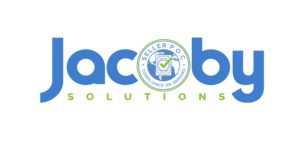Release Date: June 21, 2013
Release Number: 13-224
WASHINGTON, D.C.-The U.S. Consumer Product Safety Commission (CPSC)
announced today that Ross Stores Inc., of Pleasanton, Calif., has agreed to
pay a $3.9 million civil penalty. The penalty agreement has been accepted
provisionally by the Commission in a 3-0 vote.
The settlement resolves CPSC staff’s charges that from January 2009 to
February 2012, Ross knowingly failed to report to CPSC immediately, as
required by federal law, that it sold or held for sale, about 23,000
children’s upper outerwear garments with drawstrings at the neck or waist.
In February 1996, CPSC issued guidelines (which were incorporated into a
consensus industry voluntary standard in 1997) to help prevent children from
strangling or getting entangled on neck and waist drawstrings in upper
garments, such as sweatshirts and jackets.
In May 2006, the Commission posted a letter on its website which stated that
staff considered children’s upper outerwear with drawstrings at the hood or
neck to be defective and present a substantial risk of injury to young
children. In July 2011, based on the 1996 CPSC guidelines and the 1997
voluntary standard, CPSC issued a final rule which designates the hazards
presented by drawstrings in children’s upper outerwear as substantial
product hazards.
Ross’s distribution of some children’s garments occurred during the same
period of time as CPSC’s investigation and negotiation of a 2009 civil
penalty. The $500,000 penalty that Ross paid in 2009 was to settle staff
charges that it failed to report four series of children’s upper outerwear
drawstring garments distributed between 2006 and 2008. Ross’s distribution
of the other garments in this matter occurred either partially or entirely
after the effective date of CPSC’s Final Rule. There have been no reported
injuries associated with the recalled garments.
In addition to paying a monetary penalty, Ross has agreed to implement and
maintain a compliance program designed to ensure compliance with the
reporting requirements of Section 15(b) of the Consumer Product Safety Act
and the Final Rule. Ross also agreed to enhance its existing compliance
policies by ensuring that its ongoing program contains written standards and
policies, a mechanism for confidential employee reporting of
compliance-related questions or concerns, and appropriate communication of
company compliance policies to all employees through training programs. Ross
has designed and implemented a system of internal controls and procedures to
ensure that the firm’s reporting to the Commission is timely, truthful,
complete, accurate, and in accordance with applicable law. The company will
also take steps to ensure that prompt disclosure is made to management of
any significant deficiencies or material weaknesses in the design or
operation of such internal controls.
The Commission, in cooperation with Ross and/or other firms that
manufactured, imported, or distributed the Garments, announced recalls of
the garments listed below between March 2010 and May 2012:
Manufacturer/Importer/Distributor/Retailer
Children’s Apparel Network, Ltd. Girls’ hooded sweater with neck
drawstrings
Byer California Girls’ cargo pocket jacket with neck and waist drawstrings
Puma North America Inc. Youth training jacket with waist drawstrings
LA Fashion Hub Inc. Girls’ winter jacket with neck drawstrings
Umbro Boy’s jacket with waist drawstrings
Hot Chocolate Boy’s jogging suit with waist drawstrings
Bonded Apparel Boy’s Hooded jacket with neck drawstrings
Me Jane Louise Paris Ltd Girl’s fur hood bubble fleece with waist
drawstrings and Fur hooded bubble jacket with waist drawstrings
LANY Group LLC Girls’ terry hooded sweatshirt with neck drawstrings
YMI Jeanswear Girls’ hooded sweatshirt with neck drawstrings
Federal law requires manufacturers, distributors, and retailers to report to
CPSC immediately (within 24 hours) after obtaining information reasonably
supporting the conclusion that a product contains a defect which could
create a substantial product hazard, creates an unreasonable risk of serious
injury or death, or fails to comply with any consumer product safety rule or
any other rule, regulation, standard, or ban enforced by CPSC.
In agreeing to the settlement, Ross denies staff charges that it knowingly
failed to inform the Commission about the garments, as required by CPSA
§15(b).
*****************************************************
Statement of Chairman Inez M. Tenenbaum on the Commission Decision to
Approve Provisionally a Civil Penalty Settlement with Ross Stores, Inc.
June 21, 2013
On June 19, 2013, the U.S. Consumer Product Safety Commission (CPSC or the
Commission) provisionally approved a civil penalty settlement with retailer
Ross Stores, Inc., to resolve CPSC staff allegations that Ross committed
prohibited acts by failing to inform the Commission of Ross’s continued sale
of children’s garments with drawstrings, which pose a substantial risk of
injury to children due to the risk of entanglement and strangulation. The
settlement requires Ross to pay a monetary penalty of $3.9 million and, just
as important, to take meaningful measures to reduce the risk of future
noncompliance through implementation of significantly enhanced compliance
procedures and internal controls. After a review of the specific facts
presented in this case and a careful consideration of the civil penalty
factors, I voted to approve the settlement.
During my tenure as Chairman of the CPSC, my colleague Commissioner Robert
S. Adler and I have written together and separately regarding the need for
civil penalties to truly serve the policy objectives of deterring violations
and promoting compliance with the law, particularly in light of the
increased penalty amounts Congress authorized in the Consumer Product Safety
Improvement Act of 2008. This settlement reflects the goals and importance
of our enhanced authorities, and I commend the CPSC staff for this result.
This settlement is also a reminder to the regulated community that the
Commission will use every tool at its disposal to keep consumers and their
families safe from unreasonable risks of injury.
Ross is a repeat violator. In 2009, it paid a civil penalty of $500,000 for
violating the same law, Section 15 of the Consumer Product Safety Act
(CPSA). Neither the fine nor the supposed remedial measures Ross
implemented on its own initiative following that settlement was sufficient
to prevent the continued sale of defective garments. Vendors who were
contractually obligated to provide compliant products continuously failed to
do so; internal policies prohibiting the purchase, inventory, and sale of
garments with drawstrings were equally ineffective. Regardless of what
Ross’s management may have wanted to believe about the effectiveness of
their policies, they clearly did not work. Moreover, the fact that Ross did
not design, manufacture, or import the garments did not relieve it of the
obligation to ensure that they comply with all applicable safety statutes
and regulations.
As part of this settlement, Ross has agreed to maintain a vastly improved
compliance program designed to prevent the sale of garments with drawstrings
and to ensure timely reporting, if necessary, under Section 15 of the CPSA.
This compliance program, similar to others the Commission has begun to
require as a warranted condition of settlement, includes the following key
elements: (i) written standards and policies, (ii) whistle-blower
protections, (iii) compliance training programs, (iv) management oversight
of compliance, and (v) five-year record retention requirements.
This case clearly demonstrates that policies cannot exist solely on paper;
individuals must be charged with and held accountable for carrying them out.
It is my hope and expectation that the message we are sending with the
substantial fine and the compliance requirements in this agreement will
increase the likelihood that Ross-and other firms-will not only make the
right decision next time they are confronted with whether to report a safety
issue, but also-and more importantly for consumer safety-will take all
necessary steps to ensure they produce and market only compliant products,
thus obviating the need for any reporting at all.



